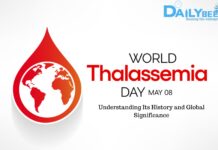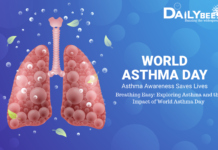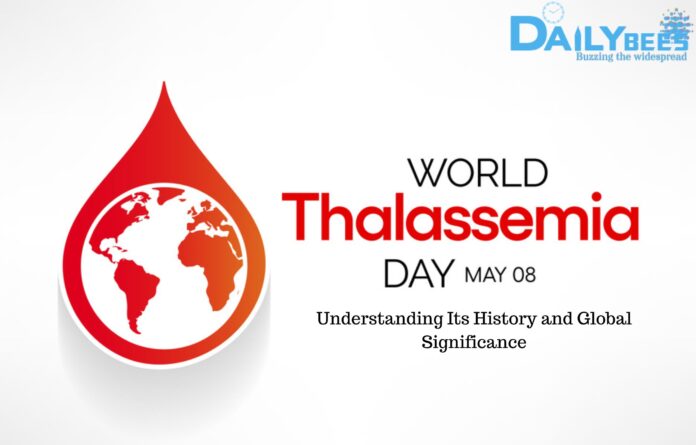World Thalassemia Day: Understanding Its History and Global Significance
World Thalassemia Day 2024: Empowering Lives and Embracing Progress
Every May 8th, the globe marks World Thalassemia Day, dedicating this time to enhance awareness about Thalassemia—a genetic blood disorder characterized by abnormal hemoglobin production. This day brings into focus the need for equitable and accessible treatment for everyone afflicted by this condition.
The Significance of World Thalassemia Day
Initiated in 1994 by the Thalassemia International Federation (TIF), World Thalassemia Day commemorates the life of Panos Englezos’s son, who tragically succumbed to the disease. This day is not only about remembering; it’s about action—advancing care, treatment, and societal understanding to improve the lives of those with thalassemia.
2024 Theme: “Empowering Lives, Embracing Progress”
This year’s theme emphasizes the critical need for accessible treatment options for all, advocating for progress in both care and the social acceptance of people living with thalassemia.
Busting Myths and Enhancing Knowledge
A significant aspect of World Thalassemia Day is addressing and dispelling widespread myths that surround the disorder. Education is a powerful tool that helps debunk misconceptions and foster a supportive environment.
Understanding Thalassemia
Thalassaemia affects the body’s ability to produce hemoglobin, leading to anemia among other health issues. It primarily manifests in alpha and beta thalassemia, each stemming from mutations in specific genes involved in hemoglobin production. The severity of the condition varies, but those with the most severe form often experience fatigue, weakness, and paleness.
Global Impact and Treatment
Prevalent in the Mediterranean, Middle East, and Southeast Asia, thalassemia can be managed through blood transfusions, bone marrow transplants, and gene therapy, though there is no known cure.
Management Tips for Thalassemia
- Regular blood transfusions: are essential for replenishing red blood cells and enhancing oxygen delivery.
- Chelation therapy: this is crucial for removing excess iron accumulated from transfusions.
- Proper Diet: Tailored dietary advice is vital, especially regarding iron intake.
- Folic acid supplements: are beneficial for increased red blood cell production.
- Routine Monitoring: Regular health check-ups help manage the condition effectively.
- Hydration and infection prevention are key to maintaining health and preventing complications.
- Genetic Counseling: Offers insights into the likelihood of transmitting the disorder to future generations.
- Emotional Support: Access to support groups and mental health professionals can greatly assist in managing the psychological impact of chronic illness.
Final Thoughts
World Thalassemia Day serves as a reminder of the continuous need for awareness, education, and advocacy to improve the lives of those affected by thalassemia. By enhancing our understanding and supporting ongoing research, we can help ensure that individuals with thalassemia receive the best possible care and lead fulfilling lives.
For health insights, visit Daily Bees Health Articles.































